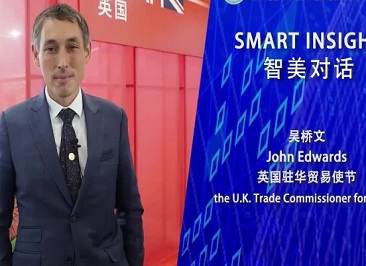20 b yuan invests in Liangjiang to support emerging industries
Updated:2015-06-19
chinadaily.com.cn
An emerging industry investment fund worth 20 billion yuan ($3.22 billion) and a culture investment fund worth 1 billion yuan both settled in Chongqing's Liangjiang New Area, according to the district's major financial project development plan revealed on June 15.
The culture fund was contributed by a guarantee insurance company controlled by Sunshine Insurance and the Fude Life Insurance.
Local and national financial departments will contribute 2 billion yuan in the first phase to the 20-billion-yuan emerging industry investment fund and 8 billion yuan will be collected through social channels. Cooperation will be conducted with the Industrial and Commercial Bank of China, the China Construction Bank, the Ping An Bank, the China Industrial Bank, and the China Merchants Bank.
"Government will fund five billion yuan and the rest will come from social capital," said an official of the district’s finance bureau. A total of 3 billion yuan out of government funds has gone to BOE and other major projects. Annual increment of 400 million yuan will be in place during the 2015-2019 period, said the official.
"(We) will support strategic emerging industry development through direct equity investment, sub-fund establishment and investing in other emerging sectors and growing small and micro projects," the official said.
The district's strategic emerging industry achieved 18.4 billion yuan in total output value last year. "It's necessary to add new force to achieve new breakthrough in the 'new normal'," said Tang Zongwei, executive deputy director of the district's management committee. "New normal" is a popular term referring to China's current economy, which means it has entered a new phase that features more sustainable, mid- to high-speed growth with higher efficiency and lower costs.
The district will focus on development of new energy, display panel, integrated circuit, cloud computing, Internet of things, robot, shale gas, new material, bio-pharmaceutical and environment protection.
"Robot is a strategic emerging industry to which Liangjiang will give a priority," said officials of the district. The big one-time investment and high technical R&D threshold are also posing pressure on potential investors from auto and electronic information industries although they are very enthusiastic about the industry, which put skids under the robot industry's further development.
The district set up a robot finance leasing center in March 2015, which allowed companies to use robots with low costs or even for free.
"At the moment, the district's finance leasing company is working on an order worth 300 million yuan," said an official of the district. "(We) will expand to receive order worth more than 400 million yuan and encourage auto and related companies to use robots."
The measure not only solves problems in robot market order and promotion but also greatly raises intelligent manufacturing level in automobiles and electronic information sectors. Bank consortium in Chongqing has paid special attention to such innovation on commercial model and has underwritten the district 23.6 billion yuan for strategic robot industry development.
Edited by Shahnawaz Akhtar
Video

John Edwards, the UK trade commissioner for China, praised Chongqing over its rise as a burgeoning center in intelligent manufacturing.





